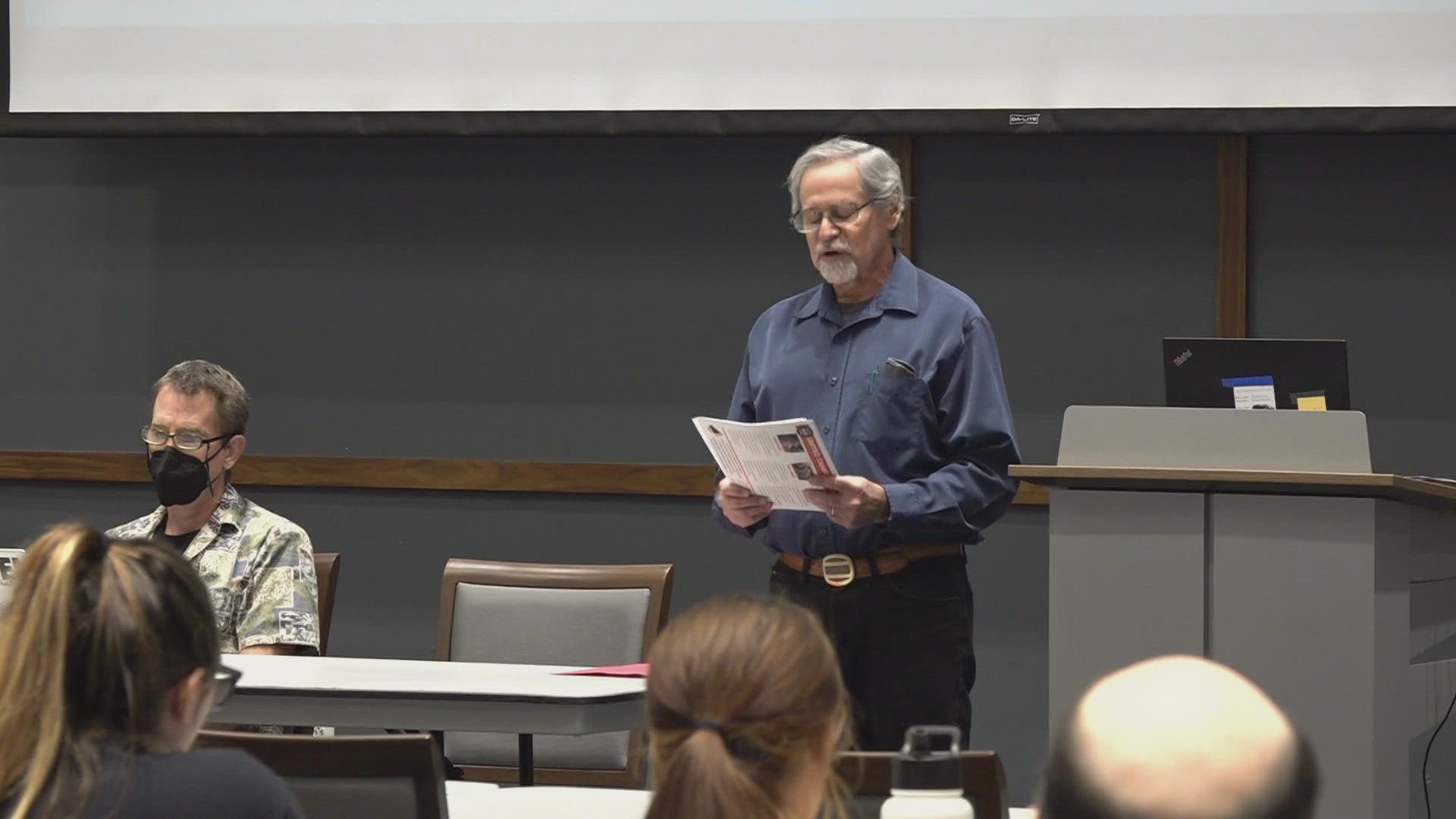KNOXVILLE, Tenn. — A new state law targeting classroom conversations is seeing pushback from professors at the University of Tennessee.
House Speaker Cameron Sexton introduced House Bill 2670 back in February. The General Assembly passed the bill and Tennessee Gov. Bill Lee signed it into law in April. It targets "divisive concepts," preventing teachers in Tennessee from bringing up certain ideas in the classroom.
It applies to all state-funded schools, including the University of Tennessee. Faculty members from UTK on a tenure track gathered to raise a collective concern about the change on Monday evening. They call the impact on classrooms across the state "chilling" and then go deeper, questioning the intent of the new law.
The law was part of a slate of bills Republicans introduced this year targeting what concepts and issues should be addressed in Tennessee's education system. This latest measure prohibits public colleges and universities from punishing students and staffers if they do not agree with certain ideas, which opens the schools up to lawsuits if they violate the measure.
The new law lists 14 topics and concepts educators can no longer include or promote. State Representative John Ragan supported the bill. He said its purpose was to eliminate confusion and division.
"The complaints that I received from parents were that their children were being indoctrinated rather than educated," Ragan said.
Ragan said education is teaching children how to think - not what to think. Several professors argue the bill has a chilling effect on the way educators do their jobs.
"I maintain just the opposite. The bill, while it has prohibitive concepts, it's prohibiting advocacy, not discussion," Ragan said. "In fact, the part of the bill specifically says that these kinds of bills are open for discussion as long as they're not advocated."
The section he is referencing:
"(b) Notwithstanding subsection (a), this section does not prohibit an LEA or public charter school from including, as part of a course of instruction or in a curriculum or instructional program, or from allowing teachers or other employees of the LEA or public charter school to use supplemental instructional materials that include:
- The history of an ethnic group, as described in textbooks and instructional materials adopted in accordance with part 22 of this chapter;
- The impartial discussion of controversial aspects of history;
- The impartial instruction on the historical oppression of a particular group of people based on race, ethnicity, class, nationality, religion, or geographic region; or
- Historical documents relevant to subdivisions (b)(1)-(3) that are permitted under $ 49-6-1011."
UTK professors said the bill doesn't make his statement clear and that doubt forces many professors to leave it out.
"Professors and faculty at universities and colleges are specially qualified to teach the classes that they teach. They need to be in charge of what goes on in their classrooms and when the legislature comes in and starts dictating what can and cannot be discussed, that disrupts the entire purpose of higher education," UTK professor Kristina Gehrman said.
UTK Sociology Professor Jon Shefner said this bill could make it difficult to accurately teach.
"Sociology is based on understanding inequalities and this law suggests that talking about inequalities is divisive and it's not," he said.
"I worry that someone could decide that I am discriminating against white men generally or could decide that I am teaching something that is divisive, but to me that is history," UTK Professor Sarah Eldridge said.

